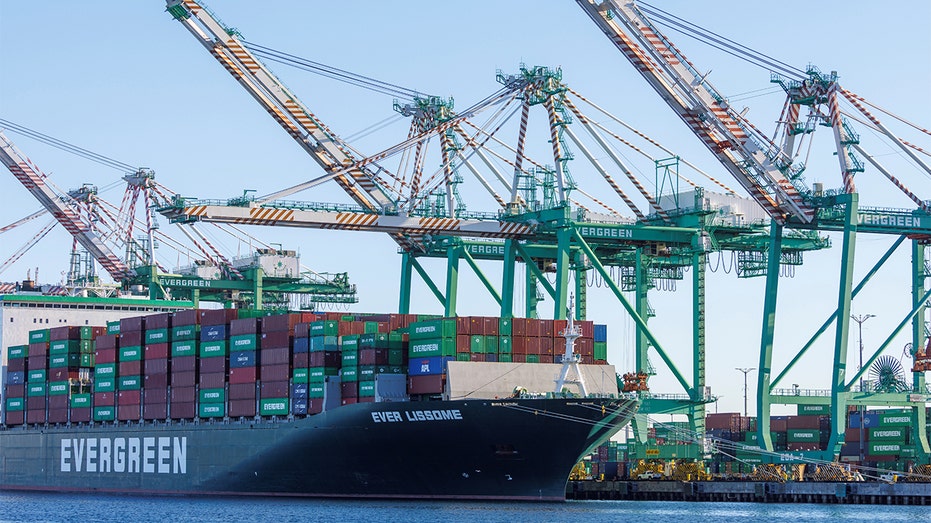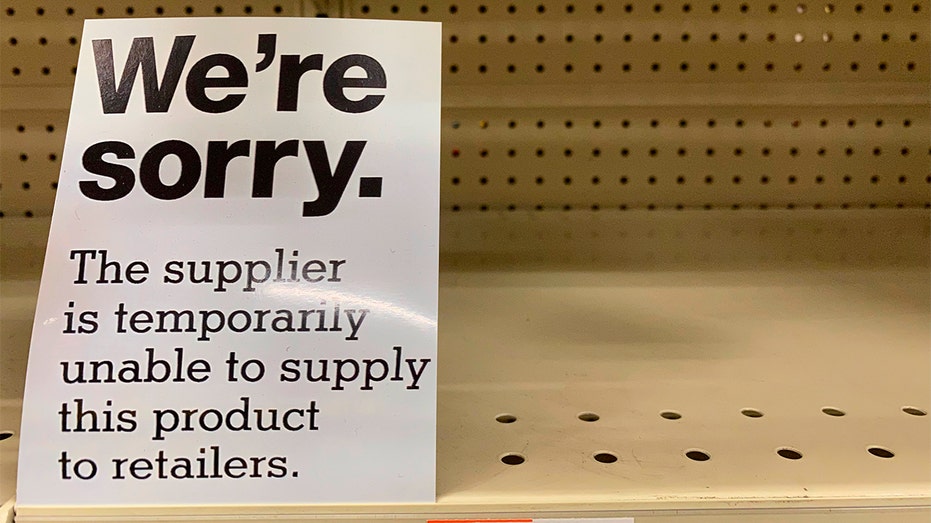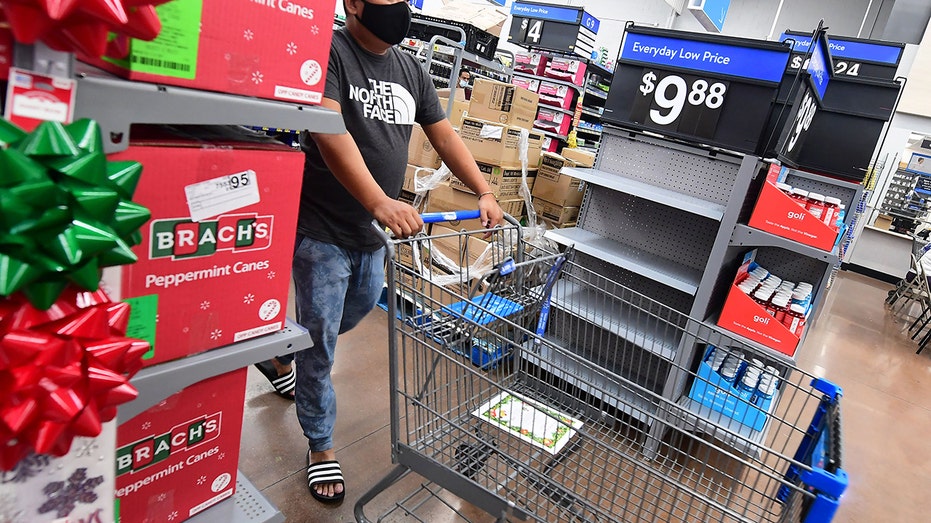Group representing top American producers predicts supply chain crisis will 'be on ballot in 2022'
The Consumer Brand Association, which represents companies like Coca-Cola and General Mills, warns that 'the window for meaningful action' to combat supply chain issues 'is shrinking'
Fox Business Flash top headlines for December 14
Check out what's clicking on FoxBusiness.com.
EXCLUSIVE: The national trade organization that represents the industry whose products Americans consume each day is spotlighting that the supply chain crisis that has impacted the nation's economy and created havoc with holiday shopping won’t disappear with the start of the new year and will "be on the ballot in 2022."
The Consumer Brand Association — an organization that represents leading food and beverage, household and personal care companies such as Procter and Gamble, General Mills, Hostess, Campbell Soup, ConAgra, Coca-Cola, Kellogg's and Clorox — emphasizes that "the country is at an inflection point where the supply chain’s vulnerabilities are exposed and it is time to act on the lessons we have learned."
SUPPLY CHAIN ISSUES SHOW SIGNS OF EASING, BUT CRISIS IS FAR FROM OVER
The group, in a report and a public opinion survey conducted in key battleground states that were shared first with Fox News on Wednesday, warns that "the window for meaningful action is shrinking. So is the patience of American voters, who will question why we didn’t do more to face future supply chain crises if we fail to act today."

A container ship is shown at the Port of Los Angeles, Nov. 22, 2021. (REUTERS/Mike Blake / Reuters Photos)
Slowdowns in manufacturing and transportation woes this year, due to COVID-19 outbreaks amid the worst pandemic to strike the world in a century, have caused severe global supply chain breakdowns. And while the problems are beginning to recede, manufacturing, shipping and retail executives do not predict a return to normalcy until sometime next year at the earliest. The supply chain crisis has helped fuel a spike this summer and autumn in consumer prices across the nation.
"Once invisible to consumers, the pandemic and holiday shipping crunch have unmasked the supply chain and made it kitchen table conversation," Consumer Brands CEO and president Geoff Freeman highlighted. "Voters have exhausted their patience with years of government inaction, and elected officials can’t afford to lose sight of the supply chain after New Year’s Day."
FIRST ON FOX BUSINESS: GOP GOVERNORS TEAM UP TO GET AMERICA'S SUPPLY CHAIN MOVING AGAIN
President Biden has made combating the supply chain crisis a top priority, and his administration has taken steps to alleviate the problems, in particular the massive backlogs at the nation’s largest ports.

A sign is seen on the shelf at a CVS store in Queens, New York. (Lindsey Nicholson/Universal Images Group via Getty Images / Getty Images)
But the Consumer Brands says it's not seeing enough action to alleviate other pain points, such as trucking capacity. The group spotlights that roughly nine in 10 of those surveyed in their poll in the key swing states of Arizona, Georgia, Nevada and New Hampshire think it’s important to expand trucking capacity in the new year and expect to see action from elected leaders.
"There has been significant attention on the ports in recent months, offering a playbook for how government can play a role in easing supply chain pressure," Freeman said. "However, too much focus on one link in the chain only serves to relocate bottlenecks, not solve problems."

People shop at a Walmart in Rosemead, California, on Nov. 22, 2021, where a few empty shelves were seen in an otherwise well stocked store amid improvements in the supply chain crisis for the end of year holiday season. (FREDERIC J. BROWN/AFP via Getty Images / Getty Images)
CLICK HERE TO GET FOX BUSINESS ON THE GO
He noted that nearly seven in 10 of those surveyed in all four states — which are crucial battlegrounds in the 2022 midterm elections — said they're more likely to back candidates who support increasing trucking capacity.
Freeman emphasized that "elected leaders have an opportunity to act on the supply chain's lessons or face challenges at the ballot box."




















